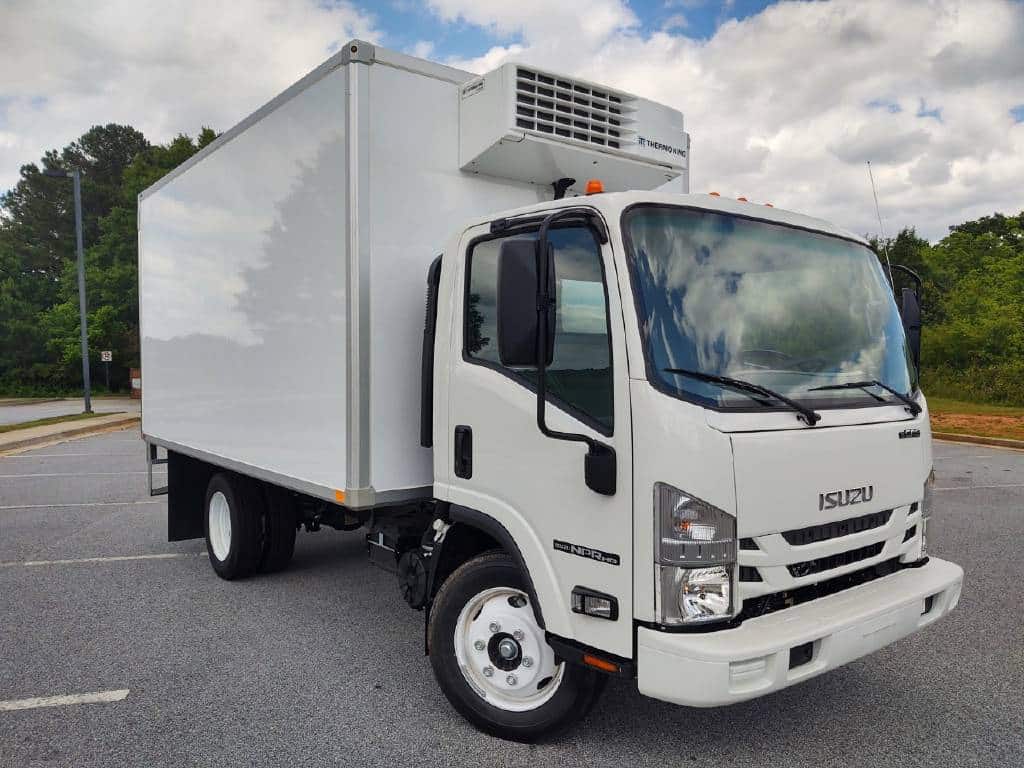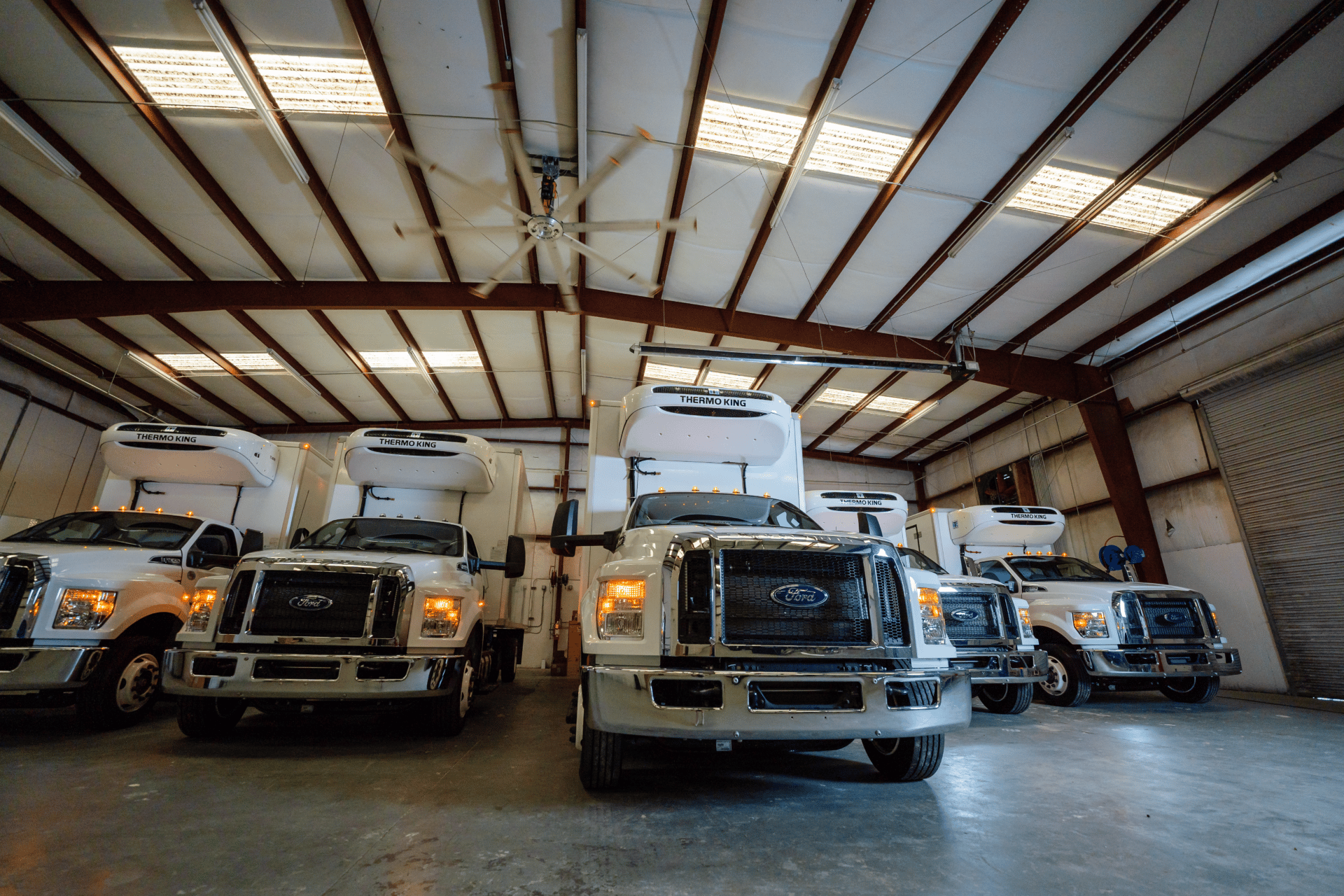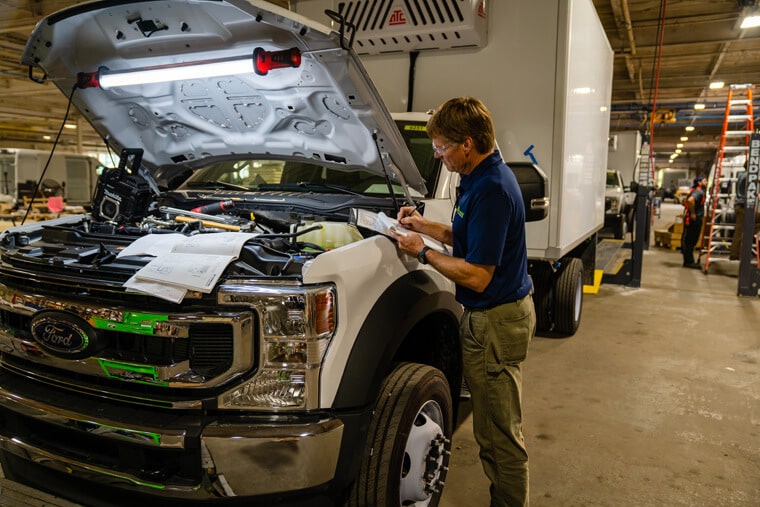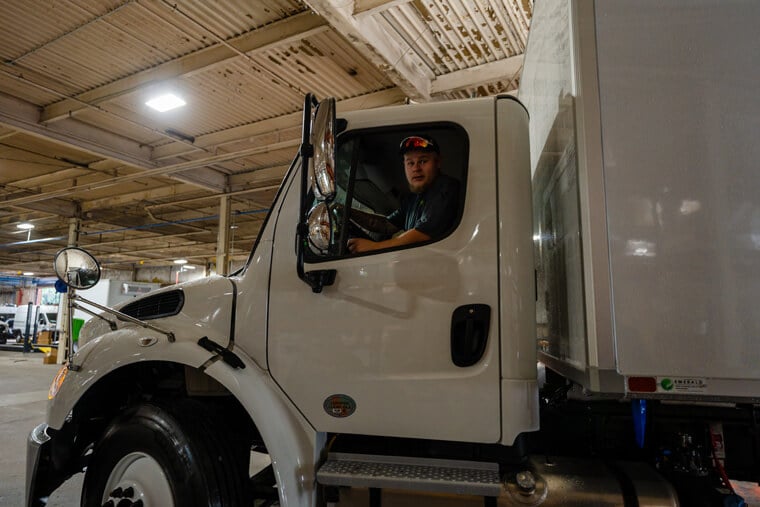
The Modern Marvel – The Refrigerated Delivery Truck
Joe Dickman | November 16th, 2023
In today’s fast-paced, digital world, conveniences arrive right at our doorsteps – from the juiciest steaks to the crispest salads. So, how do these specialty goods arrive fresh day or night? Let’s look into the nuances of refrigerated delivery truck temperatures.
Home Delivery Trucks: Keeping Your Groceries Garden-Fresh
The emergence of home delivery trucks has transformed the shopping experience. Gone are the days of personally hand-picking each vegetable or dairy product in a crowded store. Ensuring that farm and dairy freshness remains intact is at the core of our mission at Emerald Transportation Solutions. Our trucks maintain temperatures from 32°F (0°C) to below freezing. Their cutting-edge design guarantees optimal cooling, ensuring your leafy greens arrive as crisp as if freshly picked and your milk remains pristine and bacteria-free.
At Emerald Transportation Solutions, our fleet of home delivery trucks demonstrates our commitment to preserving freshness. Our trucks guarantee a farm-to-table experience right at your customer’s doorstep with state-of-the-art insulation and temperature control systems.
Beverage Delivery Trucks: Serving Up Refreshment
Visualize this: a blazing summer afternoon, and your customer orders chilled beverages from your delivery service. It’s at the perfect temperature, precisely cold enough to quench their thirst. How, they ask? Our beverage delivery trucks play a pivotal role. While the ideal temperature for beverages can vary, they’re usually chilled between 33°F to 38°F (0.5°C to 3.3°C). At Emerald Transportation Solutions, we recognize and maintain this delicate balance. Our wide range of beverage delivery trucks are designed to achieve this exact temperature range, promising that every delivered beverage is icy cold and refreshing.
Electric and Hybrid Refrigerated Vehicles: The Future of Delivery
Innovation is a constant at Emerald Transportation Solutions. As the global narrative leans toward sustainable solutions, we are already out in front. Our electric and hybrid refrigerated vehicles champion eco-friendliness and maintain our hallmark temperature quality standards. Powered by electricity, these trucks are quieter and significantly reduce our carbon footprint, all while ensuring peak product freshness.
In Search of the Ideal Cold Transit? Emerald Has Your Back
Achieving the right temperature during transit is about more than just cooling; it also includes the art of sustaining the exact environment tailored to different products. Whether dealing with fresh produce, pharmaceuticals, or beverages, even a slight deviation in temperature can jeopardize quality.
At Emerald Transportation Solutions, our expertise in refrigerated transport is unparalleled. With a legacy spanning more than 55 years, we’ve mastered the intricate science behind refrigeration.
As consumer behaviors shift and evolve, so does the technology that ensures product perfection. The next time you bite into a crunchy apple or down a perfectly chilled beverage, acknowledge those responsible – refrigerated delivery trucks, and the dedicated team at Emerald Transportation Solutions.
Related Articles
Contact Us
Feel Free To Contact Us If You Have Any Questions
What does under DOT mean?
Questions regarding DOT requirements come up often. 10,000 lbs GVW (gross vehicle weight) and over are commercial vehicles that fall under the Department of Transportation regulatory requirements.
What is the difference between GVW and payload?
GVW or Gross Vehicle Weight is the entire weight of the vehicle including the payload. The payload weight represents the amount of cargo you are hauling.
What is a self-powered unit and a vehicle-powered unit?
A self-powered unit has its own fuel source and will run independent of the truck. This is the heaviest and most expensive option. While vehicle-powered units run off the engine via a compressor mounted on the engine. These are less expensive and lighter in weight but you must run the truck or plug the electric standby into shore power.
What does K-factor mean and why is that important?
K-factor is a term that stands for the overall insulating value of the container (truck body). Quite simply the lower the K-factor the better the truck body will be able to maintain a given temperature and require less energy to do so.
How much lighter is a Poly Van vs a US spec body?
Poly Van bodies are very light. On average we estimate we are 75-150 lbs per foot lighter than a traditional sheet and post foamed in place body. These weight savings translates to less fuel burn and less CO2 emissions, along with added payload, the most important benefit.






